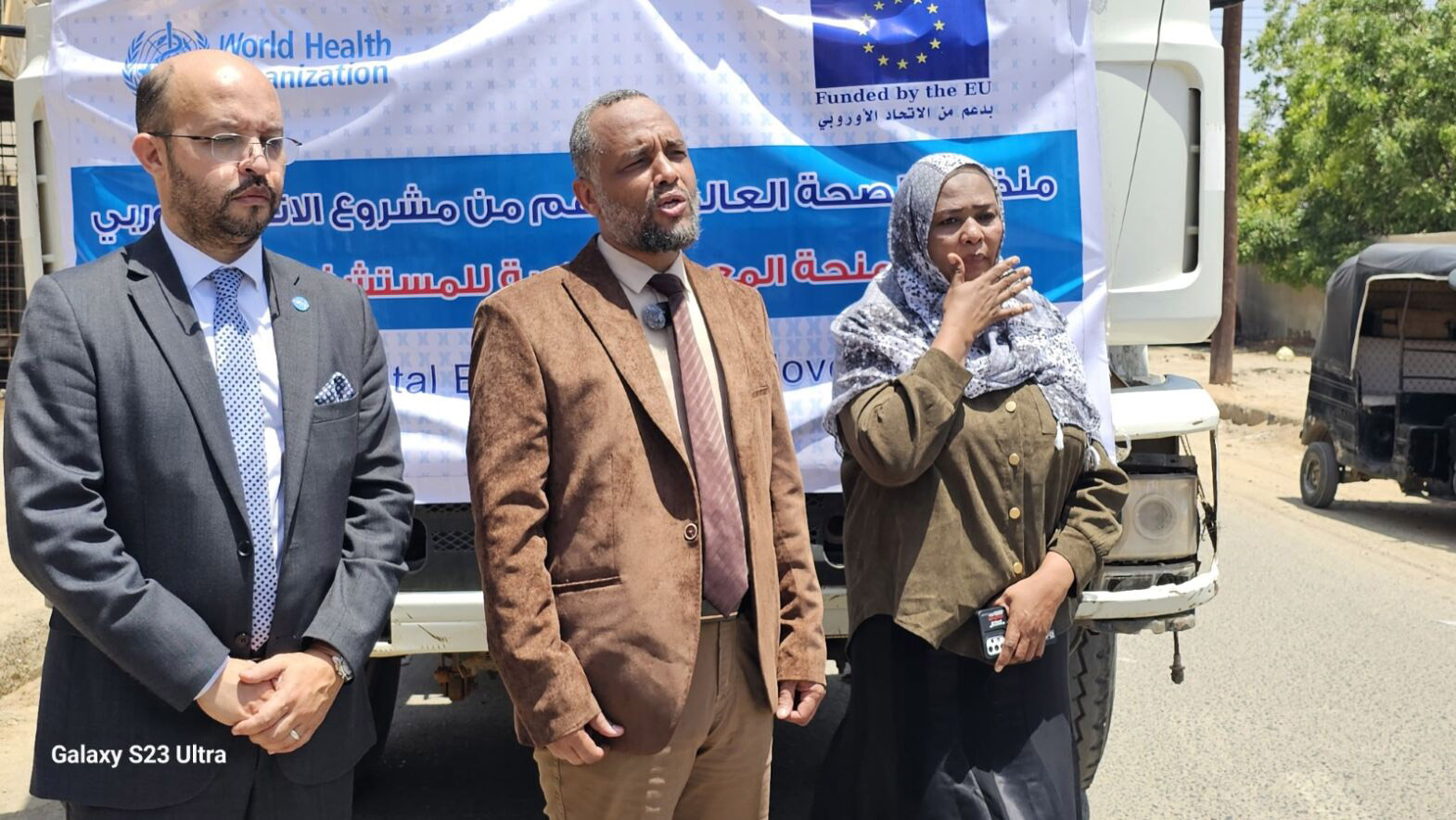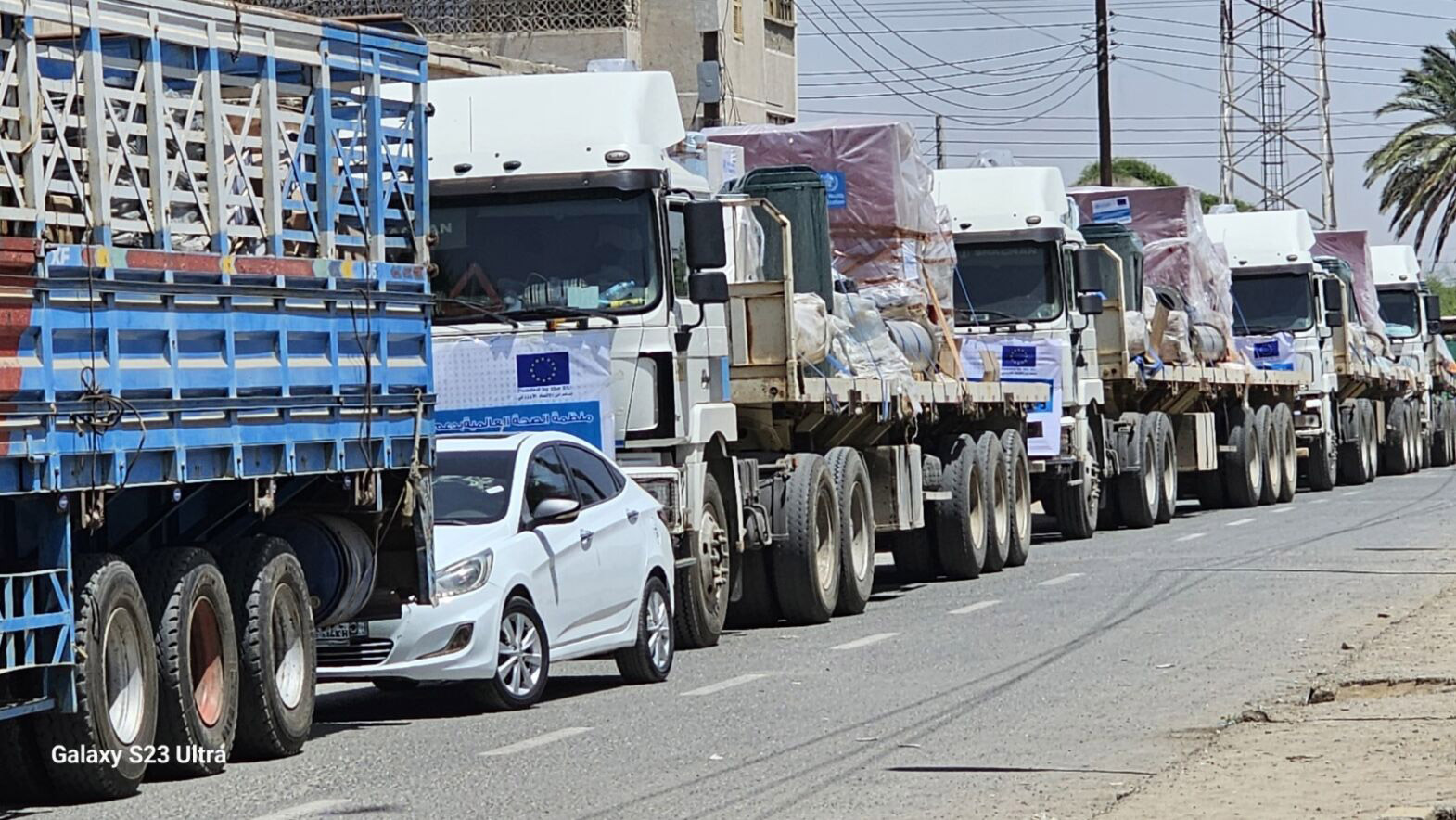 Pictured (L–R) at the handover ceremony are WHO Representative to Sudan Dr Shible Sahbani, Federal Minister of Health His Excellency Dr Haitham Mohamed Ibrahim and Director-General of Red Sea State Ministry of Health Dr Ahlam Abdel Rasoul. Photo credit: WHO/WHO Sudan8 May 2024, Port Sudan, Sudan – In a significant boost to Sudan’s health infrastructure, WHO Sudan donated a new batch of medical equipment, including state-of-the-art zero-emission incinerators, to the Federal Ministry of Health on 1 May 2024. This was made possible thanks to financial support from the European Union (EU) amounting to US$ 3 million.
Pictured (L–R) at the handover ceremony are WHO Representative to Sudan Dr Shible Sahbani, Federal Minister of Health His Excellency Dr Haitham Mohamed Ibrahim and Director-General of Red Sea State Ministry of Health Dr Ahlam Abdel Rasoul. Photo credit: WHO/WHO Sudan8 May 2024, Port Sudan, Sudan – In a significant boost to Sudan’s health infrastructure, WHO Sudan donated a new batch of medical equipment, including state-of-the-art zero-emission incinerators, to the Federal Ministry of Health on 1 May 2024. This was made possible thanks to financial support from the European Union (EU) amounting to US$ 3 million.
The assets will help enhance the quality of care provided and support infection prevention and control in health facilities in 6 states: Blue Nile, East Darfur, Northern, Red Sea, River Nile and South Kordofan.
WHO Representative to Sudan Dr Shible Sahbani expressed appreciation for the EU’s support of WHO’s work in Sudan, and for standing with Sudan’s people through the past year of conflict. “Through the EU’s financial contribution, we are able to support the effort to revive health services and address the chronic challenges in waste management faced by the health sector,” Dr Sahbani said. “The incinerators will play a pivotal role in protecting health workers, patients and patient families from hospital-acquired infections, as well as protecting the environment from biohazardous waste.”
Speaking at the handover ceremony on 1 May, Federal Minister of Health His Excellency Dr Haitham Mohamed Ibrahim stressed the importance of the new medical equipment in improving health care in Sudan: “We are grateful for the remarkable coordination and support from WHO Sudan and to the EU for donating the funds to make this possible. The equipment received today will undoubtedly save lives and enhance health care delivery across these 6 states.”
 Trucks carrying the medical equipment, procured with EU financial support, for donation to the Federal Ministry of Health. Photo credit: WHO/WHO SudanH.E. Dr Haitham further called for enhanced coordination among all implementing partners to align interventions for an effective response to the health emergency in Sudan.
Trucks carrying the medical equipment, procured with EU financial support, for donation to the Federal Ministry of Health. Photo credit: WHO/WHO SudanH.E. Dr Haitham further called for enhanced coordination among all implementing partners to align interventions for an effective response to the health emergency in Sudan.
This initiative marks a crucial step in rebuilding Sudan’s health system and addressing critical needs in hospital settings. It is a continuation of EU support to the WHO health emergency response in Sudan. In 2023, EU support enabled WHO to deliver critical life-saving devices and equipment for use in intensive care units (ICUs). Items included reanimation bags, portable ventilators, a defibrillator/patient monitor, stethoscopes, blood pressure cuffs and ICU beds.
With last year’s EU support, WHO was also able to provide critical equipment and supplies to the Public Health Laboratory in Port Sudan. This gave it the capacity to provide referencing services and play a critical role in confirming and monitoring outbreaks of measles and cholera, and emergence of poliovirus.


